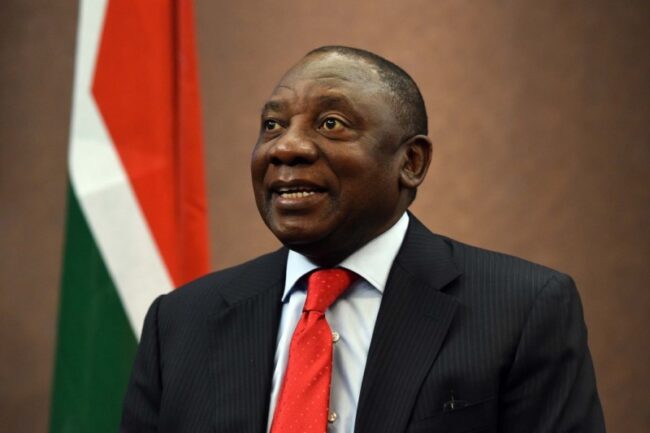Exchange-traded funds (ETFs) have been an excellent way of exposing investors to the South African stock market, which, over the last few years, has placed it in an increasingly attractive jurisdiction both for local and foreign investors.
Foreign investment is very important in determining the performance of South African ETFs, and this is an important fact for investors and market analysts to grasp as these investment instruments continue to gather momentum. This article explores how foreign investment influences the ETF landscape in South Africa, highlighting key factors that contribute to performance and growth, including the emerging sports sector.
The Role of South African Brokers
Firstly, looking at the role of South African Brokers . The Foreign investment are so instrumental in facilitating international investments into ETFs. Their services range from, but are not limited to, access to the JSE, research reports, and trading platforms that accommodate both local and international investors. Some of them provide education to overseas investors on how the South African market works, thereby placing them in a better position to make informed decisions.
Also, the brokers may be connected to international relations, which would facilitate high-value transactions and information about market performance across the world. Such an interconnectedness between the brokers and the foreign investors drives up the performance trend of South African ETFs.
Understanding the South African Funds
Exchange-traded funds are a class of investment funds that are traded on the stock exchanges much like individual stocks. They will normally track a particular commodity, sector, or index, thereby affording the investor exposure to a wide range of assets within that category without necessarily having to purchase each asset individually. The ETFs have enjoyed phenomenal growth in South Africa, much of which has been driven by several factors, mainly including lower fees, ease of trading, and efficiency in taxes relative to traditional mutual funds.
Currently, there are different types of ETFs listed at the JSE, ranging from resources, financials, technology, and even sports. As cultures of athletic sports like soccer, rugby and cricket gain popularity, there has been ETF on companies related to the sporting industry from manufacturers of sporting equipment to companies involved in the management of sporting events. This diversification does not only add options to investing but also supports the general shift of investing in sectors that are related to culture and economy.
These trends indicate that with the flow of foreign investment, the dynamics of these ETFs may be linked to the global markets. While international investors seek to capitalize on South Africa’s niches for growth, the attraction of athletic sports in ETFs is set to gain further traction driven by the rising appreciation for the economic value in the sports segment. There are interesting investment opportunities at this crossroads of sports and finance for those who want to invest in local fans’ emotions as well as global tendencies.
Foreign Investment Impact
Hence, foreign investment will feature high in the performance of South African ETFs. International investors act as liquidity providers for markets. This provides a source of price stabilization for the ETFs as well as a reduction in bid-ask spreads. Such increased liquidity provided this way cuts both ways in that it provides an avenue for smoother and less costly transactions in the sale and purchase of shares by resident and non-resident investors with negligible impact on prevailing market prices.
Also, there continues to be high levels of participation by foreign investors in new markets such as South Africa as they provide high returns to their investments. This can result in a strong demand for particular funds that will capture the country’s growth themes which are mining and renewable energy and athletic sports. Thus, as athletic sports begin to take a more central role in the South African economy, especially owing to such events as the Rugby World Cup with South Africa winning the finals in 2023 and soccer, ETFs linked to those companies involved in the sporting industry are likely to draw foreign investment. This situation may increase the prices of these ETFs and help the current investors while also increasing the flow of more capital within South Africa.
In view of this analysis, foreign investment in ETFs and athletic sports demonstrate the evolution and diversification potential of funds in South Africa. Also, foreign investors seek emerging markets for better returns. Their participation creates demand for certain funds representative of growth sectors – mining or renewable energy – in the South African economy. This demand will increase the price of such ETFs and therefore establish a profit for existing investors.
Read Also: AFCON 2025Q: Super Eagles Lucky To Get Draw — Rohr
Economic Factors Influencing Foreign Investment
The economic factors that explain foreign investments in the South African ETFs include the interest rate, inflation, and stability of currency. For instance, if the interest rates are higher in South Africa compared to other regions, then foreign capital might flow in because investors seek higher returns on fixed-income securities. On the other hand, if there is a high inflation rate, investors might shy away from it due to loss of purchasing power.
Besides this, stability in the South African Rand is also an influential factor in ensuring foreign investment flows into the country. A stable currency is highly crucial for investor confidence; it ensures that the chances of fluctuation affecting returns are reduced. When the ZAR is stable, more foreign investors are likely to get involved in the South African market, improving the performance of local ETFs.
Political Environment and Regulatory Framework
Another critical determinant of foreign investment in South African ETFs is the political climate. Transparent policies that protect investors and provide for enhanced regulatory frameworks significantly raise foreign confidence in the market. Conversely, political instability or endorsing government policies will negate foreign capital and therefore hurt the performance of the ETFs.
The increased popularity of athletic sports in South Africa has possibilities in this context. Sport development policies, which call for public support for finance in sports infrastructure and sport events, can help attract finance from abroad directed at sports ETFs. Increased scrutiny and patronage are painfully adding value to this growing sector while the investment narrative can be equally straightforward and fits with trends in sporting and entertainment industries. Since the role of regulation in enhancing this type of fund appears set for positive changes, it would benefit all sectors including athletic sports and hence improving the attractiveness of South African ETFs.The South African government has indeed gone a long way toward making the climate more favorable to foreign investments, with the reforms focused on ease of doing business. This type of initiatives makes the funds related to South Africa quite appealing to foreign investors, hiking demand and performance.
The Influence of Global Market Trends
Global markets also have an impact on foreign investment in South African ETFs. For example, as much as in periods of economic growth, developed markets seek to diversity their portfolio by investing capital in emerging markets like South Africa, in times of economic declines, foreign investors retreat from those risky assets due to possible falls of ETF performance.
Political relations, trade relations, global produce prices, and geopolitical risks influence the foreign investments in the South African ETFs. For instance, growth of athletic sports as a new comer high margin industry—fueled by events like, Rugby World cup or typical soccer —can create foreign interest in sports related ETFs which in turn could have influenced their performance. Global factors that might have a cascading effect include issues of trade relations, commodity prices, and geopolitical events of foreign investment in South African ETFs. For example, the changed price of gold or platinum dramatically alters the spread of South African ETFs in mining, hence their overall performance.
The role of foreign investment in South African ETFs cannot be downplayed as it has the potential to impact both liquidity and price stability and thus shapes the general market dynamics that will influence the performance of those investment vehicles. As South Africa continues to develop its regulatory environment, foreign capital could increase further, and the importance of ETFs to local and international investor strategies could go up commensurately.
For those set on having to navigate this complex environment, the interplay between foreign investment and the performance of ETFs becomes very crucial. By monitoring economic indicators, political developments, and global market trends, investors can be more informed and better positioned in this rapidly changing South African equity market. As their popularity continues to grow, their performance will move in tandem with the shifting tides of foreign investment, posing both challenges and opportunities for the savvy investor.





